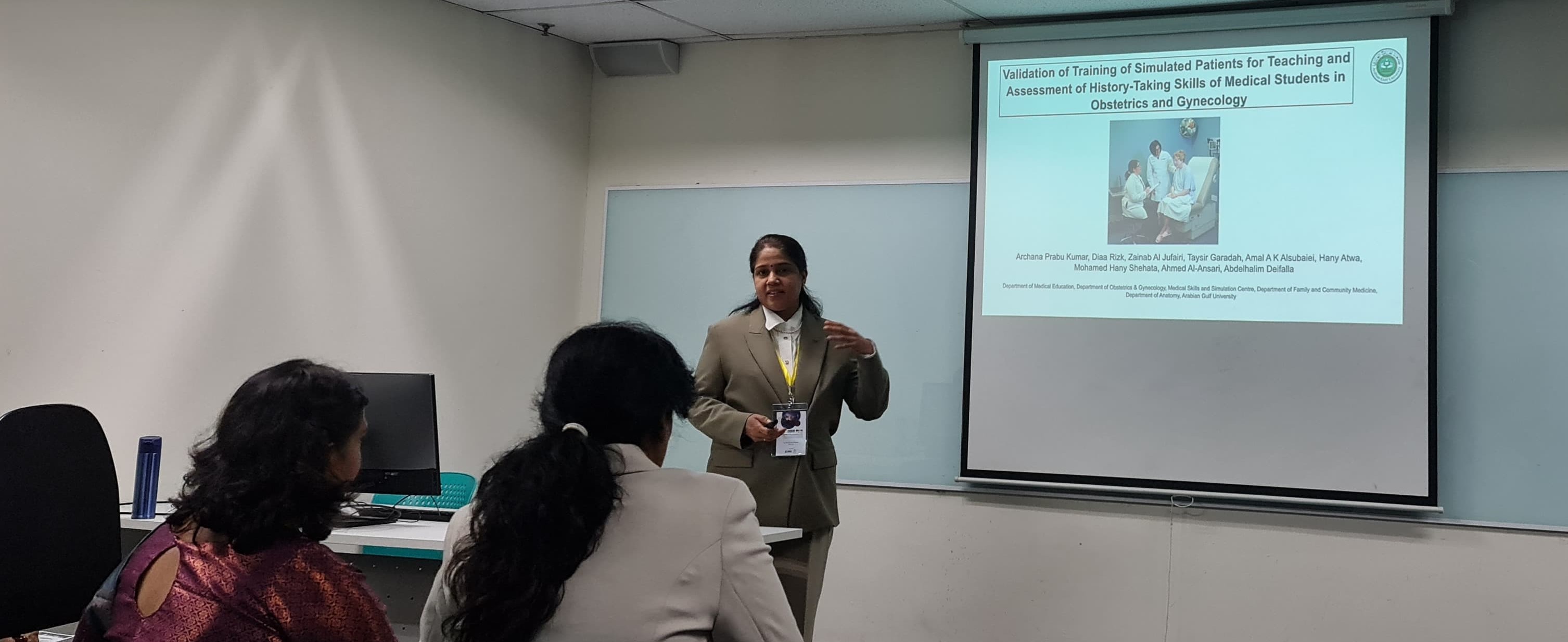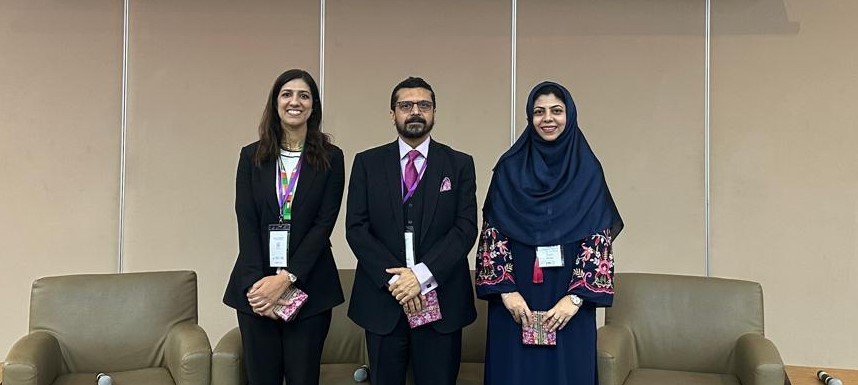
AGU Highlights Role of Innovation in Solidifying Medical Education Leadership During its Participation in the International Medical Education Conference in Malaysia
Arabian Gulf University
01 Nov, 2025
Academics from Arabian Gulf University (AGU) delivered two presentations that showcased the university's role in innovation in health education and cementing the quality and social accountability systems according to the highest international standards. This took place at the International Medical Education Conference (IMEC–ICME 2025), which was recently hosted by the International Medical University (IMU) in Malaysia.
Dr Mai Sater, Chairperson of the department of Medical Biochemistry at the College of Medicine and Health Sciences, gave the first scientific presentation, titled "AGU as a Regional Model for Stakeholder Engagement in Higher Education and Health Education."
The presentation highlighted the university's approach to building bridges between global educational frameworks, such as the World Federation for Medical Education (WFME) standards, and the real-world needs and regional job markets, all within a comprehensive vision that aligns with the GCC Vision 2030.

During the presentation, she stressed that stakeholder engagement transforms educational reforms from scattered efforts into an integrated system of trust and cooperation.
"AGU makes this participation an authentic part of its governance and institutional culture, not just a symbolic gesture, through an integrated governance system that includes the General Conference, the Board of Trustees, and the University Council. This ensures representation from decision-makers in government bodies, ministries, and industrial sectors alongside academics." She said.
Moreover, she showcased the Scientific Chairs programme at AGU, which received support from Gulf leaders such as Shaikh Zayed bin Sultan Al Nahyan, His Majesty King Hamad bin Isa Al Khalifa, and Sultan Qaboos bin Said. She described it as a model for converting regional investment into sustainable knowledge and research leadership, providing practical examples of the university's efforts in engaging various stakeholder groups.
She highlighted several initiatives, such as making students and faculty members partners in development through the "Quality Voices" initiative, which empowers students to participate in quality committees and curriculum development in accordance with WFME and NCAAA standards.
"Governments and employers are also made strategic partners, as the university works to align its programmes with Vision 2030 to ensure the alignment of outcomes with the needs of the Gulf job market, as demonstrated in the benchmarking project with the Royal College of Surgeons in Ireland - Medical University of Bahrain (RCSI)." She stated.
In the context of the initiatives, she noted the role of the community and patients as partners in social accountability by involving them in college councils and core committees, thereby strengthening the connection of health education to the real-world needs of the community.
She emphasised, "The globalisation of medical education cannot be imposed from the top down; it is built collaboratively with those who live and create the experience. We must build high-quality, high-trust educational systems."
Meanwhile, and during the conference, Dr Archana Prabu Kumar, Assistant Professor of Medical Education at AGU, presented the second research presentation, titled: "Validating the Effectiveness of Simulated Patient Training for Teaching and Assessing History-taking Skills among Medical Students in the Obstetrics and Gynecology Specialisation."
She explained that the research, which involved a multidisciplinary team from the departments of Medical Education, Obstetrics and Gynecology, Anatomy, Community Medicine, and the Clinical Skills and Simulation Centre, aims to develop a structured training programme for simulated patients that ensures realism, consistency, and educational quality in assessing students' clinical skills.
She said: "The power of simulation lies not only in realism, but in the ability to reflect and learn through practice and feedback in a safe environment. This project reflects AGU's firm commitment to evidence-based education, interdisciplinary collaboration, and continuous quality improvement in line with the standards of the World Federation for Medical Education (WFME) and the National Commission for Academic Accreditation and Assessment (NCAAA)."
AGU's participation in the IMEC–ICME 2025 conference embodies its unified vision towards high-quality health education based on partnership, innovation, and social accountability. This is in the context of strengthening its position as a regional beacon for collaboration and academic excellence, in preparation for hosting the next global event, the International Medical Education Conference (ICME 2027) in the capital, Manama, in partnership with Riphah International University (Pakistan).
